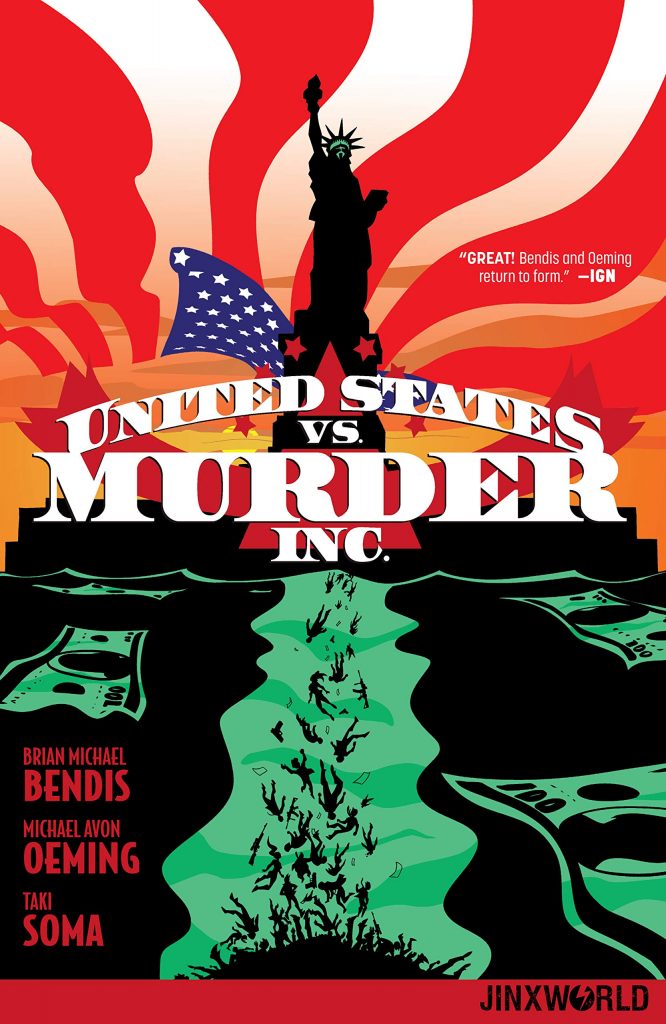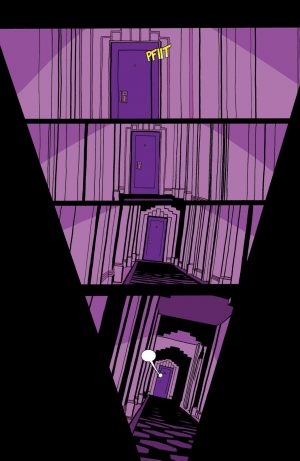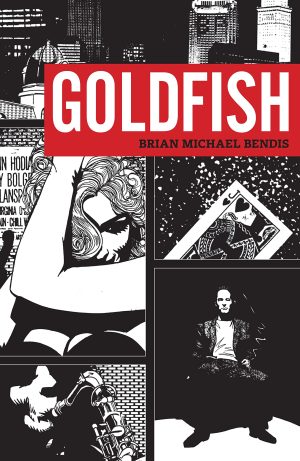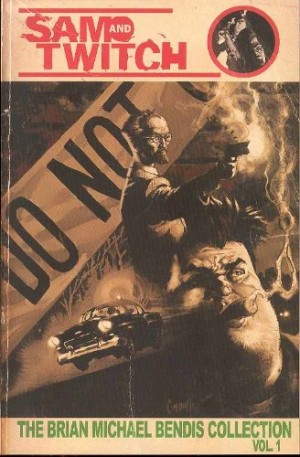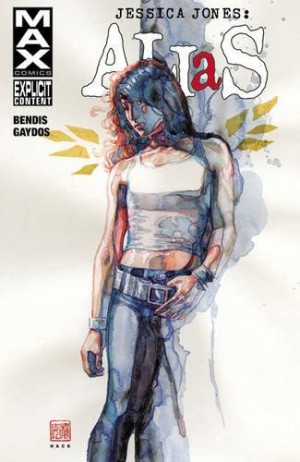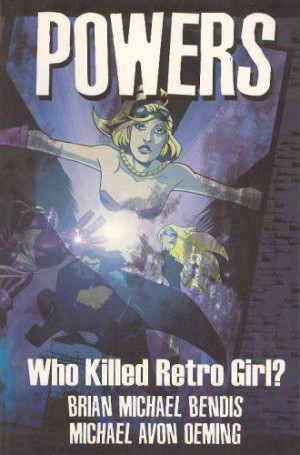Review by Karl Verhoven
It seemed as if after all the work they put into it, Brian Michael Bendis and Michael Avon Oeming had dropped their 2105 United States of Murder Inc. Obviously not. The world is one where the crime families of the past weren’t stopped by the FBI, enabling them to increase their influence, now covertly controlling several major US cities. Truth showed Valentine Gallo becoming a made man, and how things plummeted down the waste disposal from there, being teamed with the resolute Jagger Rose the one saving grace for him. The United States vs. Murder Inc (henceforth USVMI) begins as her story, revealing how she became the first gangland hitwoman, before continuing where Truth left off.
Becoming a hitwoman is a brutal process, and one of unexpected emotional hardship, the innocent looking sample art a decisive moment of torment inventively contrived, but the bulk of USVMI concerns the repercussions of a message sent by the families in Truth. “They hope I’ll do what my predecessors always did”, says the US President, “Cower. But doing what my predecessors did is how we found ourselves in this position”, she continues, in effect declaring war and activating the title.
Oeming’s changed his approach for the art, which this time isn’t as starkly shadow led, at times almost slipping into 1960s designs, and colourist Taki Soma modifies his palette accordingly, now applying a broader range of colour. The effect is to allow some sunshine into a dark, shadowy world. Not that there’s a lot of that in USVMI, so it’s something to be thankful for.
USVMI is a compromised graphic novel, three different stories glued together awkwardly, one intimate and horrifying, the second big screen cinema action, the closure a piece of gangster hokum. The third is intended as Gallo’s renewed motivation, but as such it’s barely credible, and while the first two portions work as what they’re designed to be, the fusion doesn’t. There’s also a troubling ethical distance. Bendis uses the hypocrisy of gangsters considering all kinds of atrocities acceptable in the name of honour or business, but outraged if the violence intrudes on the illusion of their cosy domestic world. It wouldn’t be troublesome were it not for only one person seeing beyond the wood to the trees, everyone else beset by tunnel vision, be they law breaker or law maker. Gallo may yet break the spell, but the final chapter is a fair swerve away from what we believed he was. Bendis is playing a long game, so we’ll have to see how that plays out, but if not revealed as part of a bigger plan, it’s inconsistent and disappointing, the conclusion being that for all the impassioned dialogue, Gallo bends with the wind. That’s only in one respect. In another he’s transformed into Al Pacino’s psychotic Scarface. It seems as if pride is preceding a fall, with more to come in United States of Murder Inc. vs. the Vatican.
